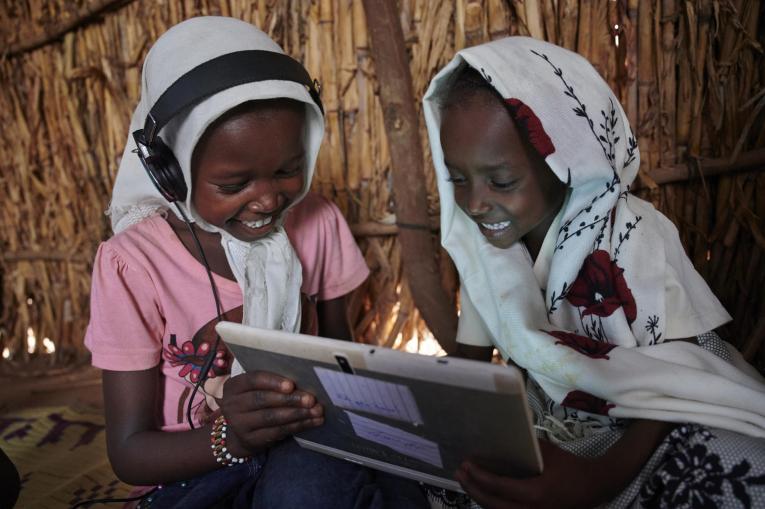UNICEF Cryptocurrency Fund announces its largest investment of startups in developing and emerging economies
New York: Eight technology companies in developing and emerging economies will receive investment from the UNICEF Cryptocurrency Fund (CryptoFund) to solve local and global challenges.
The CryptoFund will invest 125 ETH in the eight companies – from seven countries – to develop prototypes, pilot, or scale their technologies over six months: Afinidata, Avyantra, Cireha, Ideasis, OS City, StaTwig, Somleng and Utopic.
All investees have previously received up to $100,000 from UNICEF’s Innovation Fund and are now receiving cryptocurrency to continue the development of their open-source and digital public goods.
Within the scope of their technology, several investees are working to mitigate the hardships of COVID-19 on children and youth around the world. They are collaborating with national governments and local partners to send vital messages on COVID-19, track the effectiveness of rice delivery to vulnerable communities, improve children’s literacy through remote learning, treat pandemic and isolation-related anxieties, and other vital solutions.
“We are seeing the digital world come at us more quickly than we could have imagined – and UNICEF must be able to use all of the tools of this new world to help children today and tomorrow,” says Chris Fabian, Senior Adviser, co-Lead, UNICEF Ventures. “The transfer of these funds – to eight companies in seven countries around the world – took less than 20 minutes and cost us less than $20. Almost instant global movement of value, fees of less than 0.00009% of the total amount transferred, and real-time transparency for our donors and supporters are the types of tools we are excited about.”
- Afinidata (Guatemala) is further developing its AI-based app to provide parents with personalized early childhood educational activities.
- Avyantra (India) is expanding the functionality of its health app which uses data science to support frontline health workers in the early diagnosis of neonatal sepsis.
- Cireha (Argentina) is scaling the reach of its accessible app in three countries to help more children with speech impairments communicate using symbols.
- Ideasis (Turkey) is transitioning its exposure therapy tool from VR to WebVR to address anxieties and phobias from users’ homes. They will develop new therapy scenarios to address COVID-19 and isolation-related disorders.
- OS City (Mexico) is issuing blockchain-based government assets, heading towards issuing 1,000 blockchain IDs to allocate children’s educational diplomas.
- StaTwig (India) is piloting its blockchain-based app by partnering with the Government of India to track and improve the delivery of rice and support their effort to secure food for millions living in poverty – a need amplified by the onset of COVID-19.
- Somleng (Cambodia) is scaling its low-cost Interactive Voice Response platform by partnering with the Government of Cambodia to send vital information about COVID-19.
- Utopic (Chile) is transitioning its learning game from VR to WebVR and empowering educators to assess, track, and help improve children’s reading skills from their homes during COVID-19 containment measures and beyond.
Selected from almost 40 startups that have graduated from the UNICEF Innovation Fund, these eight companies have undergone technical evaluations, quality assessments of their open-source tech solutions, evidence of impact and more. They join three other grantees that received the Fund’s first cryptocurrency investment last year.
Besides funding, investees receive business growth mentorship, product, and technical assistance, open-source and UX and UI development, access to experts and partners, as well as opportunities to showcase their solutions.
The UNICEF Innovation Fund and CryptoFund currently have an open call for blockchain solutions to apply for funding (up to $100,000 and cryptocurrency combined) and mentorship. More details here: www.unicef.org/innovation/applyBlockchainCrypto

